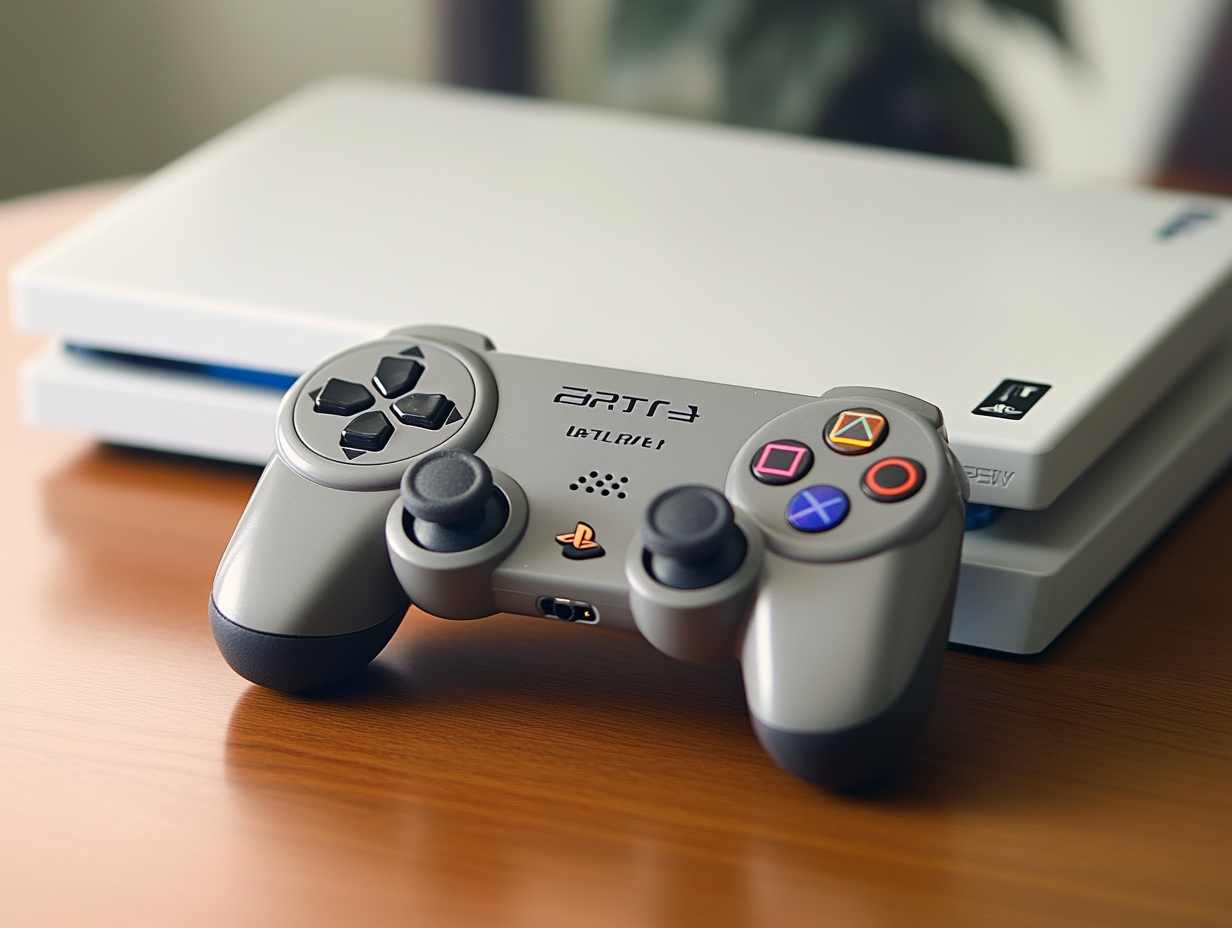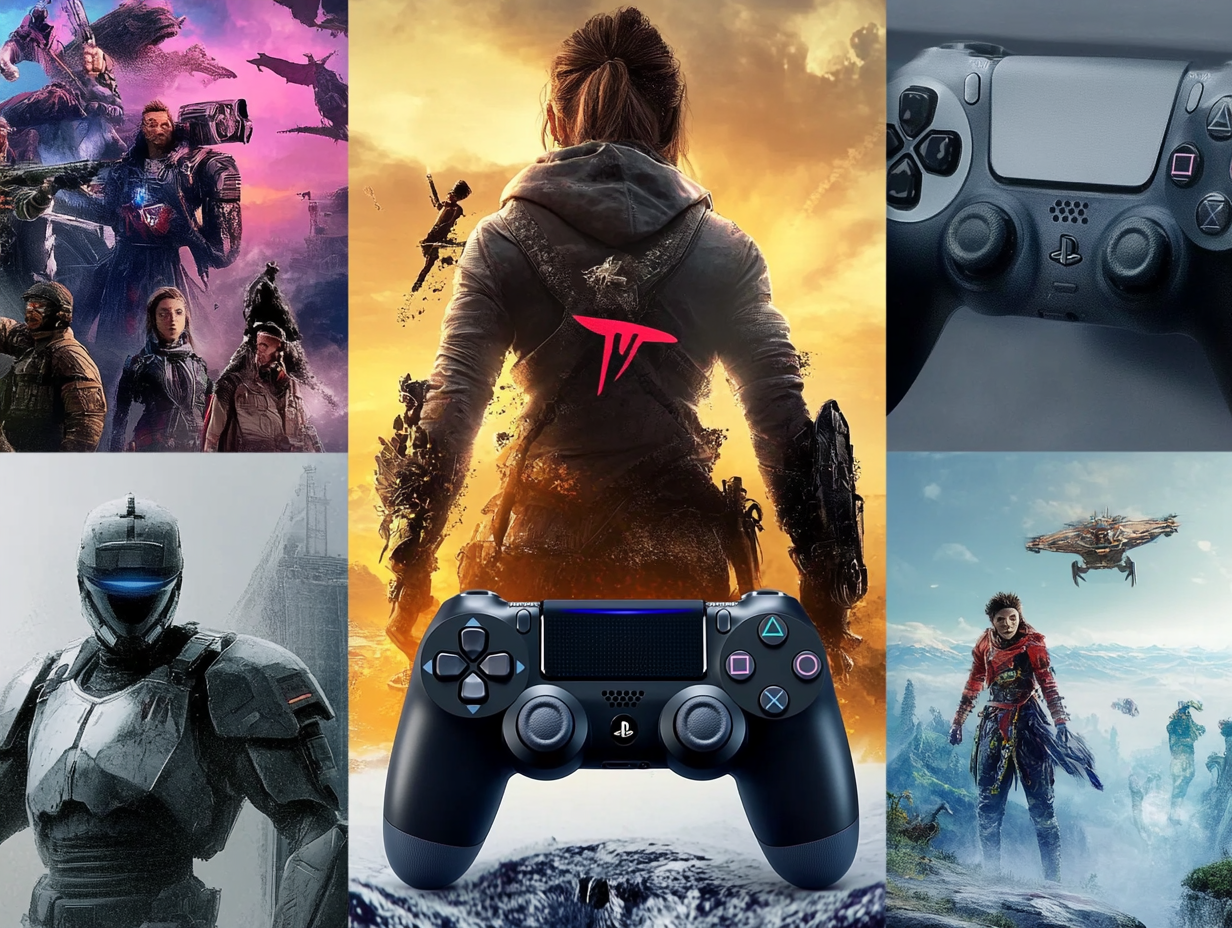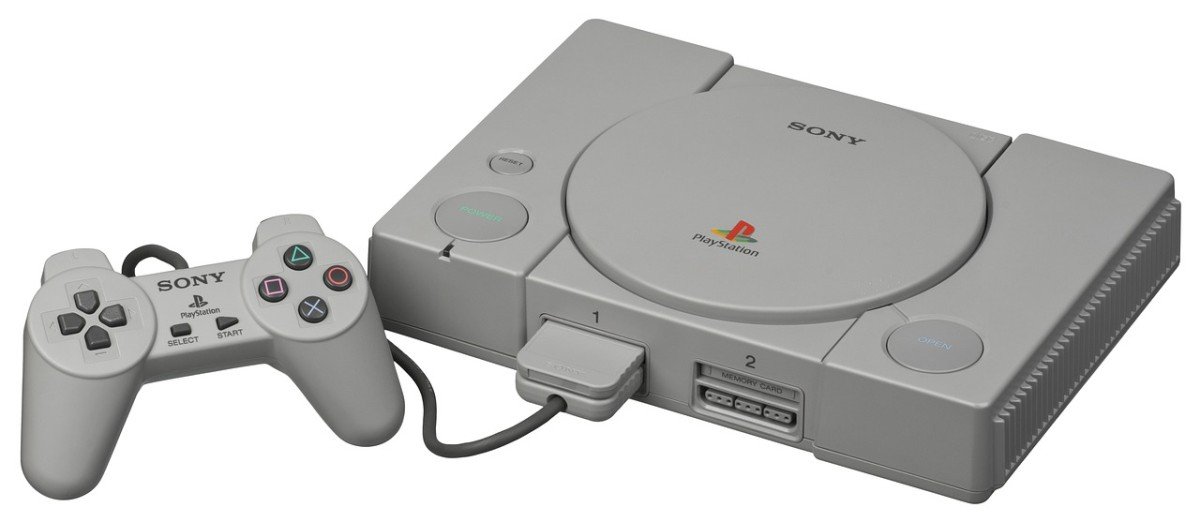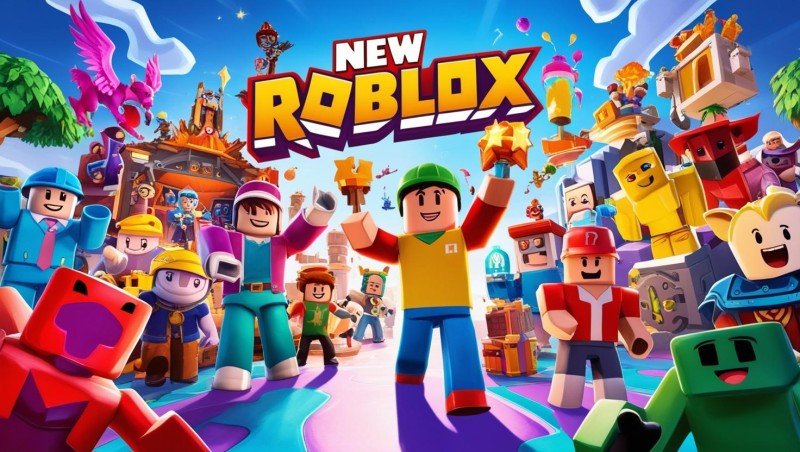The PlayStation brand has been a major force in the world of gaming since its inception in 1994. Since then, the PlayStation product line has become one of the most iconic and recognizable in the industry, representing the pioneering spirit of Sony's approach to gaming. As the PlayStation family of products expand, so too have the gaming experiences available on the platform. In this article, we will be taking a look at the history of PlayStation, as well as Sony's plans for the future of the platform.
II. History of PlayStation
Since the launch of the original PlayStation in 1994, Sony has consistently been at the forefront of advancing gaming technology. In the two decades since, the PlayStation brand has sold over 500 million consoles and become a major player in the global gaming market.
The original PlayStation was the first gaming console to feature 3D graphics and one of the first to use CD-ROM technology. It was followed by the PlayStation 2 in 2000, which is estimated to have sold over 150 million units. The PlayStation 2 is renowned for bringing gaming to a wider audience with its advanced hardware and library of bestselling titles.
The next generation saw the release of the PlayStation 3 in 2006, which added support for Blu-ray discs and improved graphical capabilities. This console was considered to be ahead of its time and was eventually released in 2008. The PlayStation 3 saw the release of several critically acclaimed titles, such as The Last of Us and Uncharted, during this period.
In 2013, Sony released the PlayStation 4, which was enhanced with additional processing power and social features. This console is estimated to have sold over 100 million units and continues to be a popular choice for many gamers. Its library of games includes classics such as God of War, as well as popular multiplayer games like Fortnite and Call of Duty.

A. Early Development
Sony’s foray into the gaming industry began in 1988 with the release of their first console, the PlayStation. Initially released in Japan, the PlayStation gained immediate success due to its powerful graphics and sound capabilities that easily rivaled the competition. The PlayStation was praised for its 3D graphics capabilities, instant loading times, and unique design.
The launch title for the PlayStation was Wipeout, a futuristic racing game which earned critical praise and sold millions of copies worldwide. This popular title helped catapult the PlayStation to become a dominant force in the video game industry. Other popular launch titles included Twisted Metal and Rayman, making the PlayStation an instant hit.
Since its initial launch, the PlayStation saw numerous updates and revisions, including the release of the PlayStation 2 in the 2000s. The PlayStation 2 introduced upgraded graphics, storage capabilities, a library of hit titles, and an online gaming platform. The PlayStation 2 was the highest grossing game console of all time and helped make Sony a household name.
B. First Generation Release
The first-generation PlayStation released in Japan in December 1994, making it the first home console to be released in Japan since the Famicom two years earlier. It quickly became the most popular home console of its era in the region, while its rivalry with Nintendo's console resulted in a fierce competition between the two. There were several features that made the PlayStation stand out compared to its predecessor and competition. The PlayStation's DualShock controller allowed for motion-based gaming, while the analog stick was an advanced component because it was capable of three dimensional movement.
The PlayStation also allowed for regional codes, meaning Japanese and North American games could not be interchanged and both had their own unique games. Its graphical capabilities also allowed for more realistic visuals, due to its more powerful GPU, compared to the SNES. The 3D polygon-based visuals of the PlayStation allowed for much more detailed character models and environments. Despite its success, the PlayStation did have some issues, such as its lack of internet capabilities and limited backwards compatibility.
C. Subsequent Consoles
The PlayStation was quickly followed by a number of new consoles, such as the PlayStation 2, PlayStation 3, and the PlayStation Portable. These systems all featured backward compatibility, allowing gamers to play older games. As each new console was released, gamers were also introduced to an array of innovative features, such as the DualShock controllers, memory cards, and efficient multimedia features.
The PlayStation 4 was the latest console in Sony's PlayStation lineup and the most powerful console ever released by Sony, boasting a powerful x86-64 AMD "Jaguar" 8 Core processor, 8 GB of GDDR5 RAM and a powerful AMD Radeon GPU making it possible to deliver amazing game experiences and visuals. The console also featured a revamped UI, providing gamers with a more immersive, console gaming experience. Along with the PlayStation 4, Sony also unveiled the PlayStation Vita, a handheld gaming device capable of playing PS4 games remotely. Finally, Sony has also released a range of VR headsets for use with the PlayStation 4; allowing gamers to immerse themselves in stunning virtual worlds.
Perhaps most excitingly, Sony has announced plans for the PlayStation 5. This new console is expected to feature an 8-core AMD 7nm Zen 2 CPU and an AMD 7nm Navi-based GPU that will feature ray-tracing support. It will also come with a new storage solution, and the ability to run 4K graphics at 120Hz and 8K graphics at 60Hz. Sony is also rumored to introduce new controllers with haptic feedback and adaptive triggers.

III. PlayStation's Impact
The PlayStation brand has become a cornerstone of the gaming industry and has had an immense impact in changing the way consumers both experience and interact with games. Since the first PlayStation released in 1994, the brand has constantly innovated, introducing revolutionary technologies like the DualShock controller and online multiplayer service PlayStation Network.
The PlayStation has been credited as revolutionizing the console gaming industry through its use of internet-based services. The PlayStation Network has allowed for cross-country online gaming, allowing players to compete with others from different regions. With its online presence, the PlayStation has opened up a world of possibilities for players, helping to revolutionize the industry.
The PlayStation brand has also had a major impact on game development, with the release of the PlayStation 4 Pro, developers have been able to create detailed in-game worlds and graphics. The PlayStation 4 Pro has provided an entirely new level of immersion, thanks to its 4K graphics and HDR capabilities. With the PlayStation 4 Pro, players were able to experience games on a much higher level and sink deeper into the story.
The PlayStation brand has also had a significant impact on the world of esports. PlayStation’s in-house tournament series, the PlayStation League, has quickly risen to become one of the biggest events in the world of esports. Here, professional teams compete in some of the most popular games on the PlayStation platform and have been credited with helping to establish the legitimacy of esports.
The PlayStation brand has had a major effect on the gaming industry and has shown no signs of slow down as it looks to the future. The PlayStation is constantly innovating, giving players access to some of the most immersive and detailed gaming experiences available, and its impact can be seen across the world.
A. Popularity
The launch of the original PlayStation was a groundbreaking event for console gaming, and it quickly caught the attention of gamers worldwide. Along with the innovative controllers and variety of games, the console was an instant success. Since its first release, the PlayStation brand has continuously grown in popularity, with the original PlayStation being one of the most successful gaming consoles of all time.
The launch of subsequent consoles only confirmed the immense popularity of the brand. The PlayStation 2 continued to dominate the gaming market, and the release of the PS3 and its motion-sensing controller sparked a newfound interest in console gaming. Later releases of the PlayStation 4 and PlayStation 4 Pro cemented the brand’s success, and their digital services have made their presence even more pervasive.
Though Sony often faces fierce competition from other brands like Microsoft's Xbox, the PlayStation remains a hugely popular option with gamers worldwide. With the PlayStation 5 on its way, the franchise looks set to maintain its dominance of the gaming scene for some time to come.
B. Impact on the Video Game Industry
The launch of Sony's PlayStation in 1994 had a massive impact on the video game industry. Sony's entry into the console market signaled a shift in focus away from Nintendo's domination of the industry, and encouraged more people to get into gaming than ever before. By the end of its first year, the company had sold two million units, and eventually went on to become the best-selling console of its generation. Its legacy was considerable; the widespread success of the PlayStation brand made it a household name and now the PS4 is the market leader.
The PlayStation also marked a rapid shift in gaming technology, ushering in the first use of 3D visuals and advanced input methods such as analogue joysticks and vibration feedback. It was also one of the first consoles to incorporate networking into games, allowing players to go online and compete with each other.
In the years since its launch, the PlayStation has become a cornerstone of the industry. Its influence can be seen in almost every aspect of gaming, from the design of controllers to the kinds of games that are released. As the console continues to evolve, it is sure to remain a major part of the landscape for many years to come.
IV. Future Plans
With the success of the PlayStation 4, Sony Interactive Entertainment is eager to continue making gaming experiences that bring smiles to millions around the world. Plans for the future of PlayStation include ambitious endeavours to create a wide range of devices with new technologies, including the PlayStation VR, a virtual reality headset. Sony also plans to incorporate cloud computing within the PlayStation ecosystem so users can enjoy a seamless gaming experience between consoles, PCs, and mobile devices. Players will also be able to use remote play to connect multiple devices, and the PlayStation app already helps make this possible.
A more concrete plan for the future of gaming is Project Morpheus. Project Morpheus is the codename for Sony's upcoming high-end virtual reality headset. It is designed to be fully compatible with the PlayStation 4, allowing users to play compatible games in virtual expansive virtual worlds. Sony has promised that this cutting-edge technology will take gaming experiences to the limit and offer players new experiences that no other console can.
Sony will also be continuing to improve the PlayStation Network and its services. The PlayStation Network already allows users to stay connected and interact with friends, family, and other players. Plans for the future anticipate faster loading times, improved graphics and resolution, and increases in frame rate.
Ultimately, the future of PlayStation looks bright. With the success of the PlayStation 4 and a myriad of new technologies and services, Sony is on its way to becoming a leader in the gaming industry.
A. Upcoming Console
The newest addition to the PlayStation family is the PlayStation 5, which was released in 2020. This latest console is a powerful gaming platform that’s perfect for immersive, high-resolution play. The PlayStation 5 offers up to 8K resolutions, ray-tracing capabilities and advanced virtual reality capabilities, among other improvements. It’s also capable of being used as a multimedia computer, allowing gamers to livestream games and access streaming services with ease.
The PlayStation 5 has been lauded for its enhanced graphics, modern features and improved compatibility with past PlayStation hardware. In addition to the improvements and features of the hardware, the PlayStation 5 also offers impressive backward compatibility with gaming consoles from the previous generation, the PlayStation 4. This means players can play from a variety of games across both platforms.
With the PlayStation 5, gamers can expect even higher fidelity visuals, greater speed and more detailed gaming worlds.
B. PlayStation Studio's Games
The PlayStation brand has developed some of the most iconic games in the history of gaming, including the beloved Metal Gear Solid, Gran Turismo and Uncharted franchises. These popular games have been attributed to Sony's success in the gaming industry, and their legacy continues to live on in their recent HD remasters.
In addition to these blockbusters, PlayStation Studios has continued to develop and release innovative and critically acclaimed titles such as God of War, LittleBigPlanet and Horizon Zero Dawn, which combine various aspects of popular genres to create an incredibly immersive experience.
Moreover, PlayStation also has a host of exclusive titles exclusive to the brand and platform, many of which are often more niche than their more mainstream counterparts, making them desirable for both avid and casual gamers alike. Noteworthy titles include Bloodborne, Shadow of the Colossus, and The Last of Us.
Thus, PlayStation Studios has created some of the most recognisable and successful games in the industry, and its library continues to grow every year.
C. Exclusives
Exclusive games have long been a key part of the success of PlayStation systems. Some of the most well-known titles to only ever appear on PlayStation systems include Uncharted 4: A Thief's End and Gran Turismo. PlayStation 4 has continued this trend, with critically-acclaimed titles like Bloodborne and Marvel's Spider-Man.
Exclusives have been even more important to PlayStation’s success with PlayStation 5. Titles such as Demon's Souls and Horizon Forbidden West have helped PlayStation 5 stand out from the competition and have helped the console become one of the best-selling in recent memory. Sony has a strong emphasis on providing top quality exclusive content, and this will continue to be the case in the future.
The PlayStation 5 also has a potent lineup of exclusive titles coming in the future. Titles such as Gran Turismo 7 and Godfall are highly anticipated titles slated to appear exclusively on PlayStation 5, with Sony having stated more could be on the way.
V. Conclusion
In conclusion, the PlayStation has had an impressive and varied history and continues to remain one of the most popular gaming platforms in the world. Its future plans include the launch of its next-generation console, the PlayStation 5, as well as the launch of the PlayStation Now streaming service. This will provide gamers with an even larger selection of experiences and games, as well as allow them to play across multiple platforms. As PlayStation continues to evolve its platform, it will no doubt change the way we play and interact with video games for years to come.



